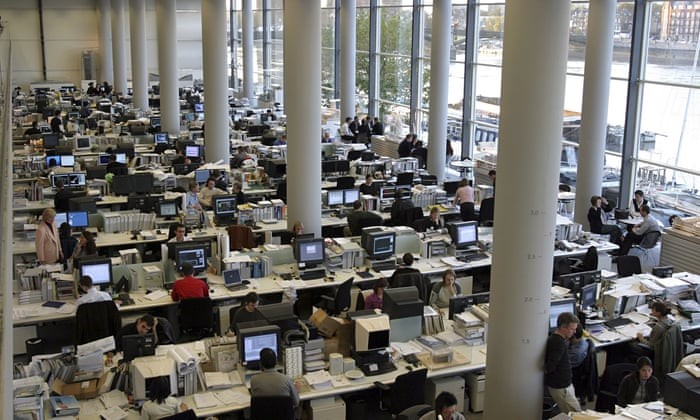Even though the government is actively encouraging us all back into the office after months of telling us to stay home, roads, public transport, office blocks, and cafes and restaurants which serve the coffees and lunches to fuel this industry of workers, remain eerily quiet.
Many firms have taken the decision to revamp the way they work, reducing the size of their offices or in some cases, getting rid of them altogether. This is even the case for those industries, such as law firms, where working from home wasn’t an option in the past but now they are re-evaluating their operational procedures, moving to smaller branches, and/or facilitating staff working remotely on a permanent basis.
Supporting the next generation
When I first became involved in this arena in 2003, Steve Woodley had a full head of hair and mine wasn’t grey! Clearly, regardless of recent events the world would, and should, have become a very different place. During this time I’m lucky to have got to know a huge number of very respected lawyers and other professionals and certainly wouldn’t question the decisions that some have taken when we are all looking closely at how we undertake our business.
Indeed, encouraging a greater degree of home working may sound like a progressive, positive step, ensuring a better work-life balance for employees than in the past. But while there are undoubtedly some benefits to working remotely, there are also times when you simply cant substitute being in the office, and I am not talking about taking advantage of the air conditioning during the heatwave. For me, one of the key questions that is in danger of being overlooked is how do you effectively train staff or bring on younger members of the workforce remotely?
Learning from others, observing and being able to ask questions, and having someone guide you when you are stuck is far easier in the workplace than on a Zoom call. I have been managing people for over 30 years and whilst scheduled training and mentoring is vital, nothing replaces overhearing that little snippet of someone else’s conversation and making a mental note to raise it later or just being on hand to have a little input into a piece of work. However good a manager or leader you are, it is almost impossible to replicate this level of support.
Big, open-plan offices have their faults, particularly if you need peace and quiet to write a report, or want a private conversation. But they will be missed if they disappear completely. There will be a whole raft of people, the next generation of professionals, left to their own devices. Some – mostly the older ones, may thrive regardless but this won’t be true for all.
Short-term gains, long-term cost
Don’t get me wrong, there are benefits from working from home and offering staff the flexibility to do so is essential. But while there may be short-term gains in consolidating and reducing office space, what is the long-term cost? Will the standard of work in general slip? Will the business leaders of the future grow disheartened or lose focus and how many of those with real potential will go off and try something else if they are not steered in the way they need to be?
Back in January, if you asked me what my thoughts were on our team working from home, I’d have said without hesitation that we are an office based company and employ people to specifically work in the office. But the pandemic has forced a change in attitudes, even mine. We realised we could work from home, and do so really efficiently, without spending too much time watching Loose Women or Netflix. Once lockdown started to ease, we told the team that they could continue working from home two or three days a week if they wanted. But from May, to a person, everyone has returned to the office full-time without a single member of our team spending a single day working from home. No-one was forced to do so but with the necessary socially distant measures in place, the team felt they would rather be in the office than at home.
I have found this quite intriguing and asked our team why they wanted to return to the office; they said:
- I prefer a clear separation of work and home life
- My drive home from the office identifies the end of my working day
- I missed office banter
- Communication among the team is better when we all work together in the office
- Training new members of staff is far easier
Work didn’t suffer while the PLG team worked from home, far from it, as we had some extremely busy and successful months during lockdown. But those who lived alone found it very hard to be so isolated for so long.
Of course, coming back has had its challenges. Again, we asked the team what the downsides were:
- Social distancing in the office took a while to get used to
- I needed to spend two nights away for work, securing the right overnight accommodation and sourcing food/drink was more difficult
- It’s harder to pop into a coffee shop or to get the laptop out and work between appointments. Essentially, I am confined to my car
- I was surprised by how many agents did not have appropriate PPE for viewings
The ideal solution.
Of course, there isn’t an ideal solution but as with anything, communication is key. Finding solutions that work for both the employer and employee will ensure that everyone moves forward in a workable, constructive way. Ensuring staff members are not feeling isolated or under-appreciated is a challenge for employers and one we all need to embrace as we come to grips with living with the pandemic.
So whilst businesses and employers assess the short to mid term benefits of the dramatic change in working practices, its equally important that new ways to assist and develop our future leaders are not ignored.

